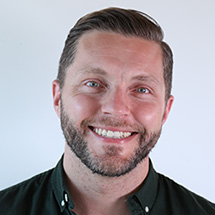Collaborative Specialization in Psychology, Psychiatry and Engineering (PsychEng)
What is the PsychEng specialization?
PsychEng is the Collaborative Graduate Specialization in Psychology, Psychiatry and Engineering. This specialization is currently between the Department of Psychology (PSY) in the Faculty of Arts & Science (FAS), the Department of Psychiatry in the Temerty Faculty of Medicine, and several Departments in the Faculty of Applied Science & Engineering (FASE), with participation by additional FASE departments and institutes.
Psychology is a science that focuses on the mind and behavior of people and animals to understand individuals and groups across all levels of analyses, from the cellular to the cultural. Psychiatry is a branch of medicine that focuses on mental health, including diagnosing, preventing and treating mental conditions. Engineering involves the creative application of science to the design of systems, processes, structures and technologies. The Psychology, Psychiatry and Engineering Collaborative Specialization will draw students interested in contributing to the growing interdisciplinary scholarship at the intersection of psychology, psychiatry and engineering.
Participating Degree Programs:
Department of Psychology, Faculty of Arts & Science:
- Master of Arts (M.A.), Ph.D.
Institute of Medical Science:
- Master of Science (MSc), PhD
Departments of 1) Mechanical & Industrial Engineering (MIE), 2) Civil and Mineral Engineering (CivMin), 3) Electrical and Computer Engineering (ECE), 4) Institute of Aerospace Studies (UTIAS), , Faculty of Applied Science & Engineering
- Master of Applied Science (M.A.Sc.), Ph.D.
How does the research work?
The PsychEng Collaborative Specialization serves graduate students who are interested in the intersection of psychology, psychiatry and engineering by providing access to learning experiences that otherwise do not exist at the University of Toronto. Students will gain improved capacity to pursue, understand, discuss, and apply engineering to research in psychology and psychiatry, and to apply psychology and psychiatry to research in engineering. Psychology and psychiatry students may discover practical engineering applications to which to apply their work, while engineering students can utilize psychological and psychiatric principles towards solving real-world problems. This specialization allows students to obtain a unique combination of competencies not otherwise available through a formal program, by completing related courses and immersion in a like-minded cross-disciplinary community, and by pursuing independent PsychEng-related research through projects that fit in areas including, but not limited to:
- Human-factors/human-centered engineering
- Engineering design theory and methodology
- Engineering-enabled methods in psychology
- Psychology-informed operations research
- Interactions between psychology, psychiatry and artificial intelligence
- Psychiatry and engineering-methods to support mental health
Participating Faculty Members
All research graduate students and faculty members in listed departments and faculties are welcome to participate in PsychEng
Mechanical and Industrial Engineering (MIE)
J. Christopher Beck, Operations Research and Artificial Intelligence
Amy Bilton, Design for the Developing World
Mark Chignell, Applied Cognition and User Interface Design
Birsen Donmez, Human Factors and Transportation
Michael Grüninger, Information Engineering and Knowledge Representation
Greg A. Jamieson, Human Factors and Automation
Paul Milgram, Human Factors and Medicine
Goldie Nejat, Robotics and Human-Robot Interaction
Alison Olechowski, Product Design and Development
Li Shu, Creativity in Conceptual Design, Design for Pro-Environmental Behavior
Civil and Mineral Engineering
Jeffrey Siegel, Indoor air and psychology
Electrical and Computer Engineering
Jonathan Rose, Software and Natural-Language Processing in the Service of Mental Health
Institute of Aerospace Studies (UTIAS)
Peter Grant, Pilot training
Hugh Liu, Aircraft Flight Systems and Control
Psychology
Morgan Barense, Perception/Cognition/Cognitive Neuroscience
Dirk Bernhardt-Walther, Perception/Cognition/Cognitive Neuroscience
Craig Chambers, Perception/Cognition/Cognitive Neuroscience
Wil Cunningham, Social/Personality/Abnormal & Perception/Cognition/Cog. Neuro.
Katherine Duncan, Perception/Cognition/Cognitive Neuroscience
Amy Finn, Perception/Cognition/Cognitive Neuroscience/Development
Michael Mack, Perception/Cognition/Cognitive Neuroscience
Elizabeth Page-Gould, Social Cognition
Jason Plaks, Social/Personality/Abnormal
Jay Pratt, Perception/Cognition/Cognitive Neuroscience
Benjamin Wolfe, Perception/Cognition/Cognitive Neuroscience
Psychiatry
Tony George, Biology of addiction co-morbidity with serious mental illness
Meng-Chun Lai, Mental health and wellbeing of neurodivergent individuals with autism or related neurodevelopmental conditions, across sexes and genders
Hsiang-Yuan Lin, Neuroimaging and computational methods to characterize atypical neurodevelopment
Benoit H. Mulsant, Improving treatment of severe mental disorders
Abigail Ortiz, Mood disorders with focus on bipolar disorder
Admission requirements
Applicants must be accepted into one of the participating graduate degree programs (i.e., M.A.Sc./Ph.D. in the Faculty of Applied Science and Engineering or M.A./Ph.D. in the Department of Psychology or M.Sc./PhD in Institute of Medical Science) before being accepted into the Collaborative Specialization.
In addition to satisfying the home degree admission requirements, applicants will provide a statement of purpose in which they describe their background or experience relating to engineering, psychology, psychiatry and their intersection, and why they are interested in pursuing graduate studies in PsychEng.
Steps to complete registration:
1. Complete the Registration Form and submit the signed form to psych_eng@mie.utoronto.ca
2. Complete online registration form.
Steps to request completion of PsychEng:
If you have met the requirements to complete the MASc or PhD degree, as well as the PsychEng Collaborative Specialization, please complete this form to have your request reviewed for the fulfillment of the PsychEng specialization.
Course List
Core Course
APS1305H PsychEng Seminar Series - Master's level - Two Sessions required
APS1308H PsychEng Seminar Series - Ph.D. level - Two Sessions required
In addition to the core course, students must take at least one graduate course from the non-home faculty. That is, engineering students must take at least one qualifying graduate course in either Psychology or Psychiatry. Psychology or Psychiatry graduate students must take at least one qualifying graduate course in engineering.
Elective Courses
Please note that not all courses are not offered every year. Consult each unit’s website for details.
Civil & Mineral Engineering
CIV1320H: Indoor Air Quality
Mechanical & Industrial Engineering
MIE1070: Intelligent Robots for Society
MIE1401: Human Factors Engineering
MIE1402: Experimental Methods in Human Factors Research
MIE1403: Analytical Methods in Human Factors Research
MIE1412: Human-Automation Interaction
MIE1415: Analysis and Design of Cognitive Work
MIE1444: Engineering for Psychologists and Psychiatrists
MIE1505: Enterprise Modeling
MIE1510: Formal Techniques in Ontology Engineering
MIE1720: Creativity in Conceptual Design
KMD2001: Human Centred Design
Psychology
PSY1000 Directed Studies
Department of Psychology courses offered in the 5000 series (see Department for exclusions)
Institute of Medical Science (Psychiatry related topics)
MSC1006H: Neuroanatomy - Introduction to Anatomical Organization of the Brain
MSC1085H: Molecular Approaches to Mental Health and Addictions
MSC1087H: MRI Neuroimaging Methods
MSC1089H: The Biopsychosocial Basis of Mental Health and Addictive Disorders
MSC6000H: Special Topics, Reading Course
Additional Information
If you would like additional information about this specialization, please contact:
LH Shu, Professor of Mechanical and Industrial Engineering
Wallace G Chalmers Chair of Engineering Design
Director of Collaborative Specialization in Psychology and Engineering
Link to PAST & UPCOMING PsychEng SEMINARS
FEATURED PsychEng STUDENTS

Pablo Cotera
PhD Candidate,
Water and Energy

PhD Candidate,
Autonomous Vehicles
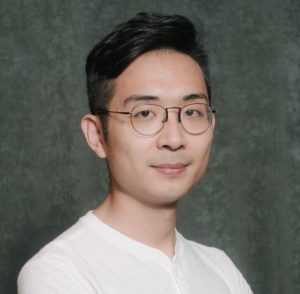
PhD Candidate,
Indoor Air Quality
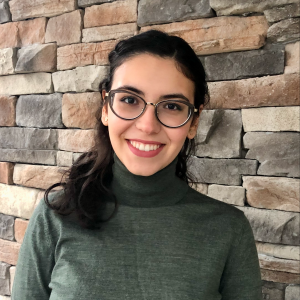
MASc Candidate
Design for Pro-Environmental Behavior
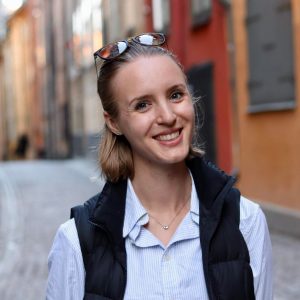
Emily Heffernan
MA Candidate,
Computational Cognitive Neuroscience, Artificial Intelligence

PhD Candidate,
Autonomous Vehicles
MASc Candidate,
Design Creativity
PhD Candidate,
Social Robots
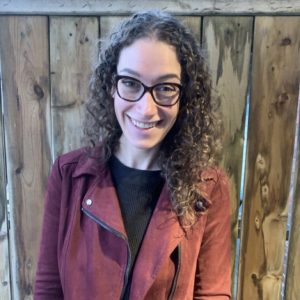
Lauren Vomberg
PhD Candidate,
Auditory perceptual organization and music cognition paradigms
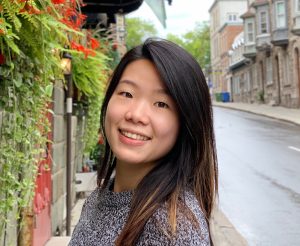
Tiana Wei,
PhD Candidate,
Neurobiology of language and brain lateralization

 Alex Sahar
Alex Sahar 